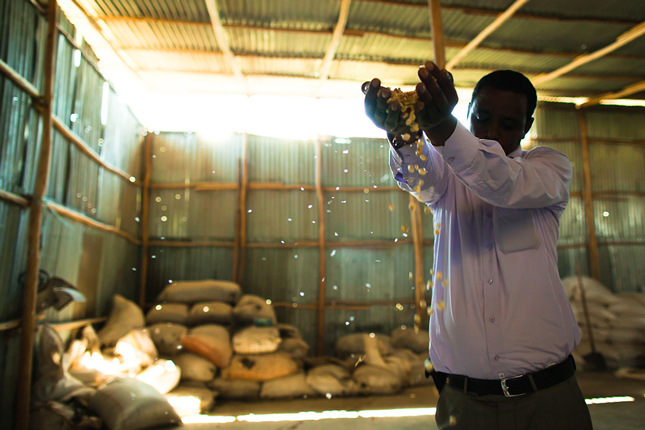-
Lisa Palmer, Future Food 2050
The Politics of Food Technology Innovation for Africa
July 22, 2014 By Wilson Center Staff
As a boy growing up on the shores of Lake Victoria in Kenya, Harvard international development professor Calestous Juma noticed a thing or two about innovations designed to bring more food into his community. He noticed, for instance, that the fishermen were always tinkering with new ways to trap fish while his father, a carpenter, would build the traps. He also noticed that his grandmother, a peanut grower, and other farmers who grew traditional crops such as sweet potatoes, struggled with ways to increase production beyond simply planting the best quality seeds and tubers.
That childhood curiosity helped lead Juma down a path to prominence as an international authority on applying science and technology to sustainable development, including work with the United Nations and the African Union. Now he is looking ahead to intensifying food production sustainably. “The rising concern over the impact of climate change on agriculture will significantly shape the way Africa approaches agriculture,” Juma says. “It is no longer possible to rely on folk knowledge as the key guide for farming.”
Lessons for Africa’s Leadership
As part of his work, Juma advises high-level leaders, especially African presidents, on the role of technology in agriculture. “I am guided by the view that the application of science and technology to agriculture requires extensive coordination across many actors and sectors,” he says. “It is essentially a political process, and political leadership is essential. For this reason, I have been working closely with the African Union and have chaired a number of high-level panels to guide presidents on biotechnology in particular and science and technology in general.”
Continue reading on Future Food 2050.
Lisa Palmer is a freelance journalist and a public policy scholar at the Wilson Center.
Photo Credit: Accessing credit for food security, courtesy of Morgana Wingard/USAID.
Topics: Africa, agriculture, consumption, development, economics, education, environment, food security, gender, Kenya, land, nutrition, Uganda, UN
 A Publication of the Stimson Center.
A Publication of the Stimson Center.



